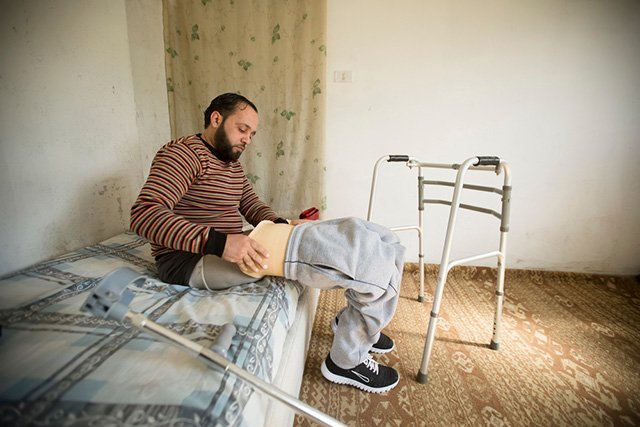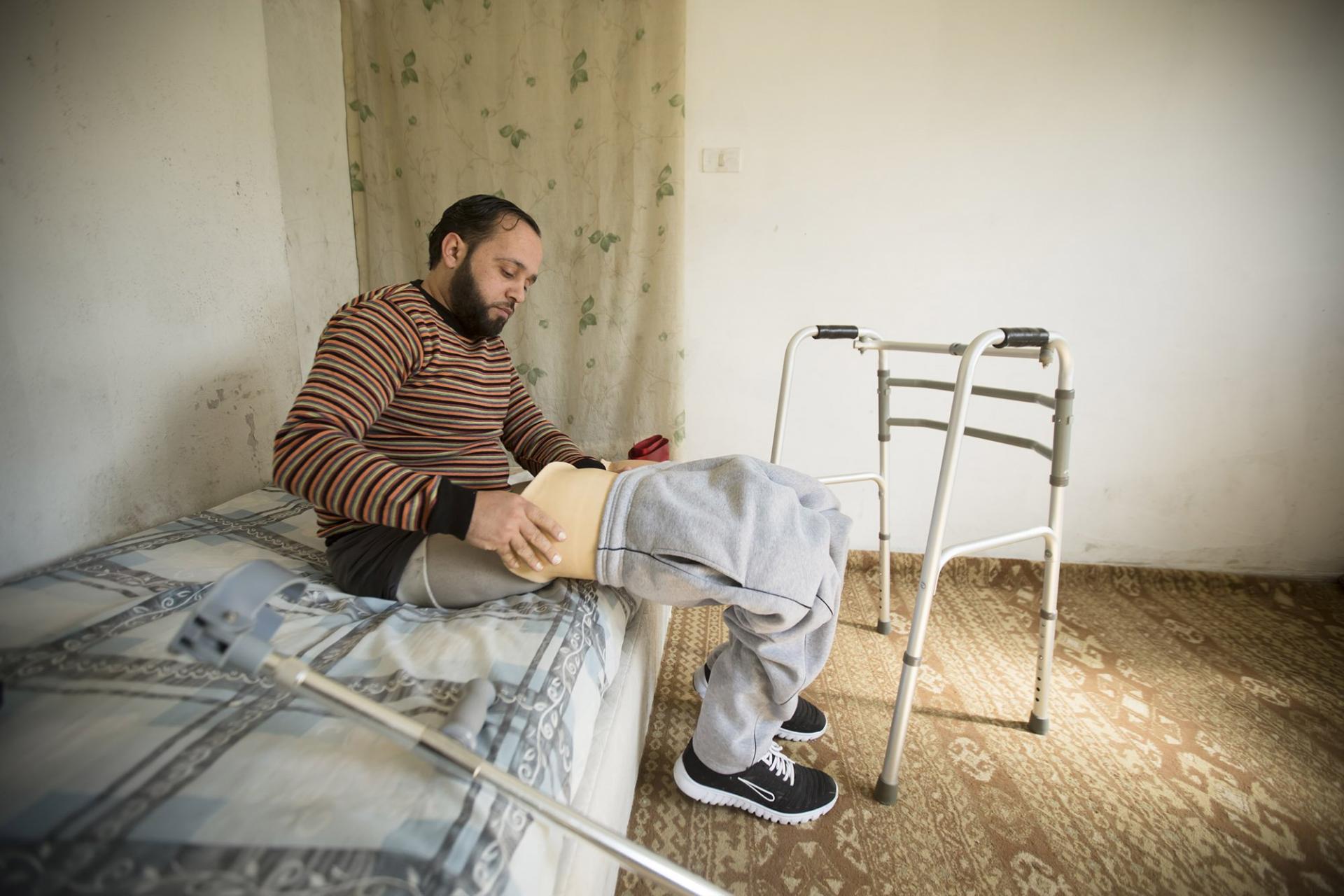Omar Al Balkhi, 29, is a Syrian war-wounded patient, who was severely injured in a bomb blast in Daraa, Syria and treated at first in a field hospital and was later transferred to the MSF War Trauma surgical project at Al Ramtha hospital in Jordan and underwent multiple surgeries.
Al Balkhi speaks of the trauma of losing his legs, his struggle to recover from the injuries he sustained, and the physical and psychological help he is now receiving in Jordan.
I am Omar Al Balkhi, a 29-year-old Syrian war wounded patient. I sustained my injuries due to a Bomb in Daraa. I received treatment in Syria for a period of seven days.
Treatment was received at a field hospital, which lacks a lot of surgical instruments, and consequently, I was transferred, upon the doctor’s request, to Jordan.
I received treatment for five months in MSF War Trauma surgical project in Al Ramtha hospital.
I underwent multiple surgeries. In addition to mental support sessions and physiotherapy sessions.
I as discharged from the hospital after some time directly to my house.
I live in a rented house with my family, in the north of Jordan.
My daily routine starts with having breakfast, working out for a bit, surfing the net, and socializing with family and friends who live close by.
I left home for the first time after a long period of treatment in the hospital. There were good and not so good moments. Not so good, as in I still felt that I did not lose my limbs.
Good moments being the first time I get out, or walk, or depend on myself since more than seven or eight months.
There is no doubt that there is an impact on my psychological state, especially before the injury, I depended on myself when it comes to doing everything in the house.
I even met the needs of others. After receiving the injury, I discovered that sometimes I am in need of people’s help, and so this definitely affected me.
Usually when I feel down, or a bit depressed, I try to write poetry. Before the crisis in Syria, I used to write about friendship and love. Nowadays there is the only war to write about.
When I was able to use my prosthetics and walk, I decided to go on visits to several hospitals, where there are people like me: they had injuries the same as mine; they had amputations similar to mine.
Many of them have fear. And I encountered people who do not leave their rooms at all. People who do not move, who do not accept any of what happened to them.
And so when they saw that I have this injury and I am walking, their daily conduct entirely changed. They started going out and moving around, started eating, started drinking, started seeing a smile on theirs.
They are more accepting of the need to be treated.
Before my injury and on a personal level I had very high ambitions. But presently, sometimes I feel that there is a lot of emphasis on like the issue of prosthetics.
To try and get a new set of prosthetics, because the ones I already have in bad condition.

When I go back to Syria, I aspire to find work there, to have private projects that a person can implement there, because of my injury.
Four years later, a hope for a solution soon for Syria is a bit difficult. The crisis in Syria is a long-term crisis for one reason.
It is the global conscience crisis. It is not the crisis of Syria, because in general, in the whole world, there is the Human Rights Convention, but there are no human rights. And so, as long as there is a convention but there are no human rights, the crisis, it is difficult, and it will continue.
Omar Al Balkhi is one of the Syrian war-wounded patients, who was treated in MSF War Trauma surgical project in Al Ramtha hospital.
Since opening in September 2013, MSF offered mental health consultation sessions to 1764 war-wounded patients.
Find out more about MSF's work in Syria.
